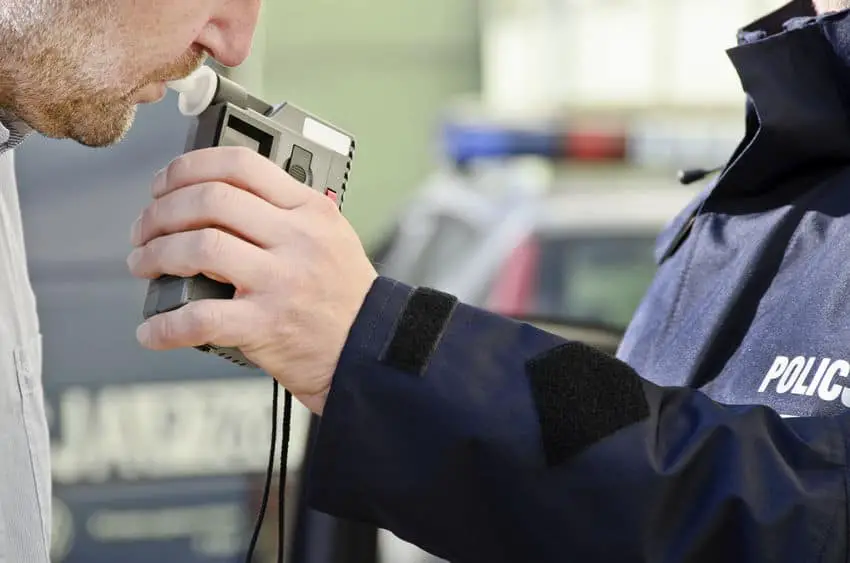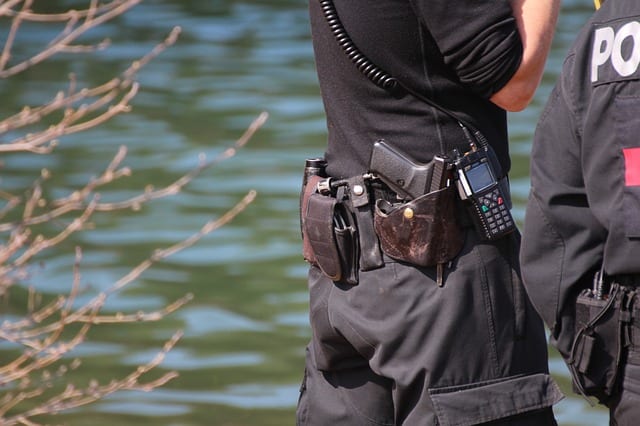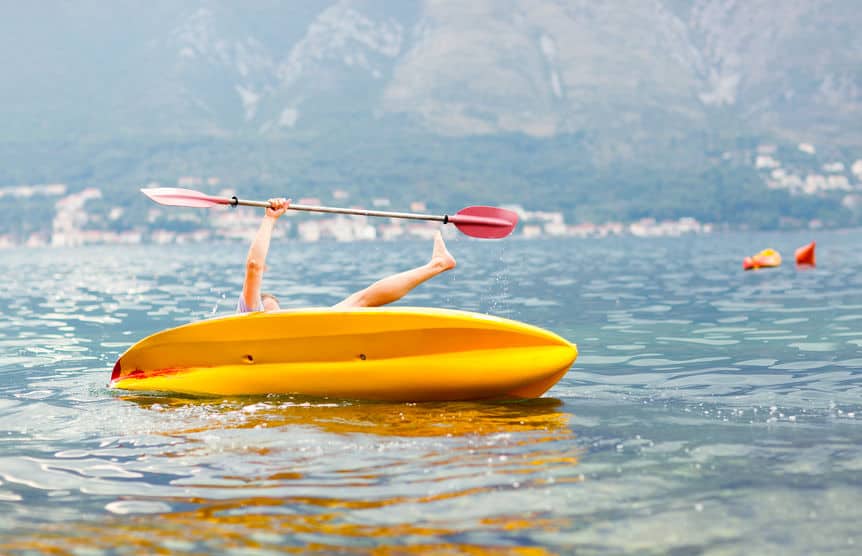Here recently, I have noticed a common debate among some of my friends regarding kayaks, alcohol, and the law. The law has always interested me to a point, as I am always cautious to be on the right side of it; I do not fancy giving my hard-earned dollars up for a ticket that could have easily been avoided. Naturally, when this debate started taking place I decided to sit down and really dive into the laws involved with kayaking and boating in my state. After learning a lot on this topic, I decided to dig further. I discovered many interesting laws in different states and countries.
The simple answer is: Yes, you can absolutely get a DUI or BUI while kayaking. Laws tend to be open ended and up to interpretation, allowing officers to make a decision on-scene; regarding the law, and rather it has been broken or not. In some areas, you may not be able to get a DUI (Driving Under the Influence) or BUI (Boating Under the Influence) on a kayak but you can be arrested for public intoxication. Looking into your region’s specific laws can help you determine rather you are comfortable with the risk of ending up on the opposite side of the law, so let’s take a look at some variables in the law that I stumbled upon based on location.
What exactly is a DUI or BUI?
The term “DUI”, which stands for Driving Under the Influence, is commonly mistaken for a law that only applies to motorized vehicles, such as cars. You may be shocked to find out that you can obtain a DUI in many states in the US without operating a motor vehicle and that there is also a BUI, which stands for Boating Under the Influence, which can apply to any watercraft the state deems a “vessel”.
Since we are discussing drinking while kayaking, I will refer exclusively to a kayak from now on.
A DUI or BUI can be issued when an officer of the law suspects someone is operating a vehicle or watercraft under the influence of drugs or alcohol. Most Officers will test a suspect’s BAC (Blood Alcohol Content) to determine rather or not the person has had too many drinks to be operating a vehicle in a safe manner. One or more of several sobriety tests may be conducted to help the officer determine if the operator of the vehicle is sober enough to manage driving it.
I have put together some information regarding DUIs and BUIs together so that you may navigate your kayak within the limits of the law.

The United States
When it comes to doing something you think is potentially illegal, it is best that you look into your own state’s specific boating laws HERE. The laws in the United States tend to be vague, allowing officers to make a decision on a case-by-case basis.
Many kayakers argue that kayaks aren’t subject to many of the same laws as other watercraft, such as boats being required to have proper lighting, whistles, and flags in some states. While that may be true, some states refer to a “vessel” in their BUI laws, meaning that any manner of watercraft used for transportation is subject to a BUI. That’s right, you can obtain a BUI in many states on nearly anything that floats on a body of water, including anything inflatable with more than one air chamber in the state of Ohio.
The fact of the matter is that obtaining a BUI can come down to the specific officer and how he/she interprets the law and rather or not you have broken it. If you are clearly intoxicated and putting yourself in danger on your kayak, then you may find yourself dealing with a large fine or even jail time.
Check out this silicone sleeve used to hide cans on Amazon.com. This is a gag gift and not intended to deceive law enforcement and should only be used in legal situations. Please drink responsibly. I am not providing legal or medical advice. This post is for informational purposes only.
Canada
I was shocked to find out exactly how strict Canada is when it comes to drinking while kayaking. In Canada, a kayak is referred to as a “vessel” which is subject to the same DUI laws as a motor vehicle. You are considered to be ‘under the influence’ if your BAC is .80 mg or more and while each individual operates differently under different levels of intoxication, the law does not change.
Getting busted for a BUI in Canada can range from fines starting at $600 and up to several months of jail time.
It is best to check the laws in your specific province before cracking a cold one on the lake.
You can do so by going HERE.
The UK
The United Kingdom takes a different approach to the law on kayaking under the influence. Alcohol legislation only applies to watercraft in excess of 23 feet. You may technically be allowed to drink while kayaking in The United Kingdom without the risk of getting a BUI however, you may still be arrested for public intoxication or disturbing the peace if you become unruly or dangerous when you engage in drinking.
While the law seems to stray away from kayaks in the UK, it is still best to contact the local precinct and confirming before downing some drinks on your kayak.
Australia
Taking a very firm stance, Australian kayakers are subject to follow the same laws as every other water vessel. Meaning that there is absolutely no tolerance towards drinking while kayaking, falling in line with NSW marine legislation. You are responsible for your kayak and making sure that it follows the rules listed clearly HERE.
New Zealand
Similar to Australia, New Zealand requires kayakers to comply to all boating laws. The law states that you can be prosecuted by operating a watercraft while intoxicated, which includes a kayak, under section 65 of the Maritime Transport Act. Even though there is no license required to operate a pleasure boat in New Zealand, Ignorance of the law is no excuse. It is recommended that you take a boating class or at least read up on the laws before hitting the water, HERE.
What to do when stopped by the police

It goes without saying that if you’re doing something illegal, you will more than likely be stopped by the police at some point. Unfortunately, there is no foolproof way to deal with the police that will leave you with a slap on the wrist every time. Many encounters with law enforcement come down to your personal record, how polite you are, and even how good the responding officer’s day has been. With that being said, be honest, polite, and respectful when stopped and your experience will be a lot more pleasant.
The Effects and Dangers of Kayaking Under the Influence

Sitting down and making an informed decision is the least that you owe yourself. Before pushing off the bank into the water, you should be aware that alcohol affects everyone differently and can start affecting anyone with as little as two beers. Many people argue that individuals who weigh more can drink more without feeling the effects of alcohol, which may not always be true. Your motor skills are extremely important when kayaking, so let’s take a look at how alcohol affects them:
- Muscle Control – Alcohol acts a depressant on the central nervous system, meaning that messages carried by the nerves take more time to arrive at the brain. Incoming senses (like pain) become dulled. This makes you less aware of overexertion and injury. Awareness also suffers, leaving room for error when navigating particularly dangerous rapids or waves. Likewise, the signals sent from the brain to the nervous system are slowed as well; this causes a direct loss of precision motor skills.
- Reaction Time – Kayaking is an activity that requires the ability to process information and react back to it, sometimes leaving little to no time for error. Alcohol directly slows down your reaction time dramatically. Delayed reaction time and loss of coordination are responsible for hundreds of thousands of alcohol-related deaths every year.
- Vision – Perhaps the most underrated effect of alcohol is its ability to affect your vision. Alcohol directly affects your vision by making it harder to focus your eyes, which can cause a narrow field of view. Being able to see and understand your surroundings when kayaking is important for your safety. Your depth perception and ability to distinguish colors are also affected.
According to recent studies, alcohol is involved with 70% of drownings involved in a recreational aquatic activity. Also, in the United States, an average of ten people drown per day. Being sober and giving yourself the best chance to react to what is happening around you will make the difference when life and death.

